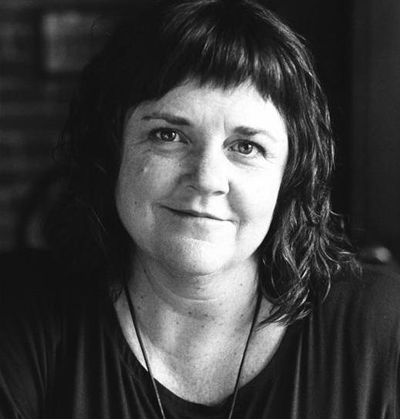Dinnison celebrates release of first novel

In “You and Me and Him,” Spokane writer Kris Dinnison tells the story of two high school outsiders – the overweight music geek and her gay BFF – who fall for the same new guy.
This young adult novel will be released Tuesday by Houghton Mifflin Harcourt. That night Dinnison will celebrate her debut novel’s release with an event at the Bartlett.
Dinnison is a familiar face in Spokane. She spent nearly two decades in education, primarily as a high school English teacher in the Mead School District. She and her husband, Andy, own the popular downtown gift shop Boo Radley’s, and the nearby coffee shop Atticus.
In this Five Questions With interview, Dinnison talks about writing for the young adult market, bringing music to her work and great advice.
Q. What is it about the young adult world that attracts you as both a reader and a writer?
A. I’ve always been attracted to stories about transitions, and I think that movement from childhood to adulthood is one of the most interesting ones there is. It’s ripe with conflict and emotion and possibility. I think it’s especially interesting in our culture. In many cultures there is a moment, a ceremony, a single act that moves you from being a child to being an adult. But we stretch it out and parse adulthood out in pieces: driving, cigarettes, military, drinking, rental cars; it takes about 10 years to become an official adult. I also think those stories are interesting because despite the specifics, there are so many universals contained in that transition.
Q. Where did “You and Me and Him” have its genesis?
A. The real genesis was with the character of Maggie. I had written in a notebook “a girl who works in a record store.” When I set myself the challenge of writing the first draft of this novel, that’s where I started. That girl became Maggie, whose voice was talking to me pretty loudly from the beginning of the first draft.
Q. As a former teacher, you probably know kids like Maggie and Nash and Tom. Do you think your former profession helped you find those characters?
A. Being a high school teacher for so many years, as well as the parent of a teenager while I was writing the book, definitely helped me get to know my characters. I went to high school a while ago, so writing a novel about contemporary teenagers without having access to their world at all would have been really hard. Even working in a high school didn’t really get me the answers I needed because the most important and difficult experiences teenagers have rarely happen in the presence of the adults in their lives. I did interviews, ran the book by actual teens, and did a lot of work to make it feel true.
Q. Music plays a big part in your story. Was it difficult to weave all those songs into your narrative?
A. I would have loved to use more lyrics, but that gets really expensive because of copyrights and royalties, but I really wanted music to be a part of the story. When I was a teenager music was so important to me, and I think it’s the same for young people today. The music I listened to sort of clarified and distilled the experiences I didn’t have a way to talk about. I started thinking about the kinds of music that would be on vinyl in the record store where Maggie works, and then I picked songs based on what was going on in the story at that moment. Billie Holiday was a part of it from the beginning, but the other songs just sort of found their places in the story.
Q. What was the best piece of advice you’ve been given about writing?
A. I’ve been on such a learning curve as a writer the last five years, so I have been given loads of great advice by a lot of generous writers. I’m working on a first draft of a new novel right now, so I think the advice that’s most valuable to me at the moment comes from Anne Lamott. In her wonderful book on writing, “Bird by Bird,” she says “Almost all good writing begins with terrible first efforts. You need to start somewhere.” Giving myself permission to write a truly awful first draft is the only way to get to the next step.